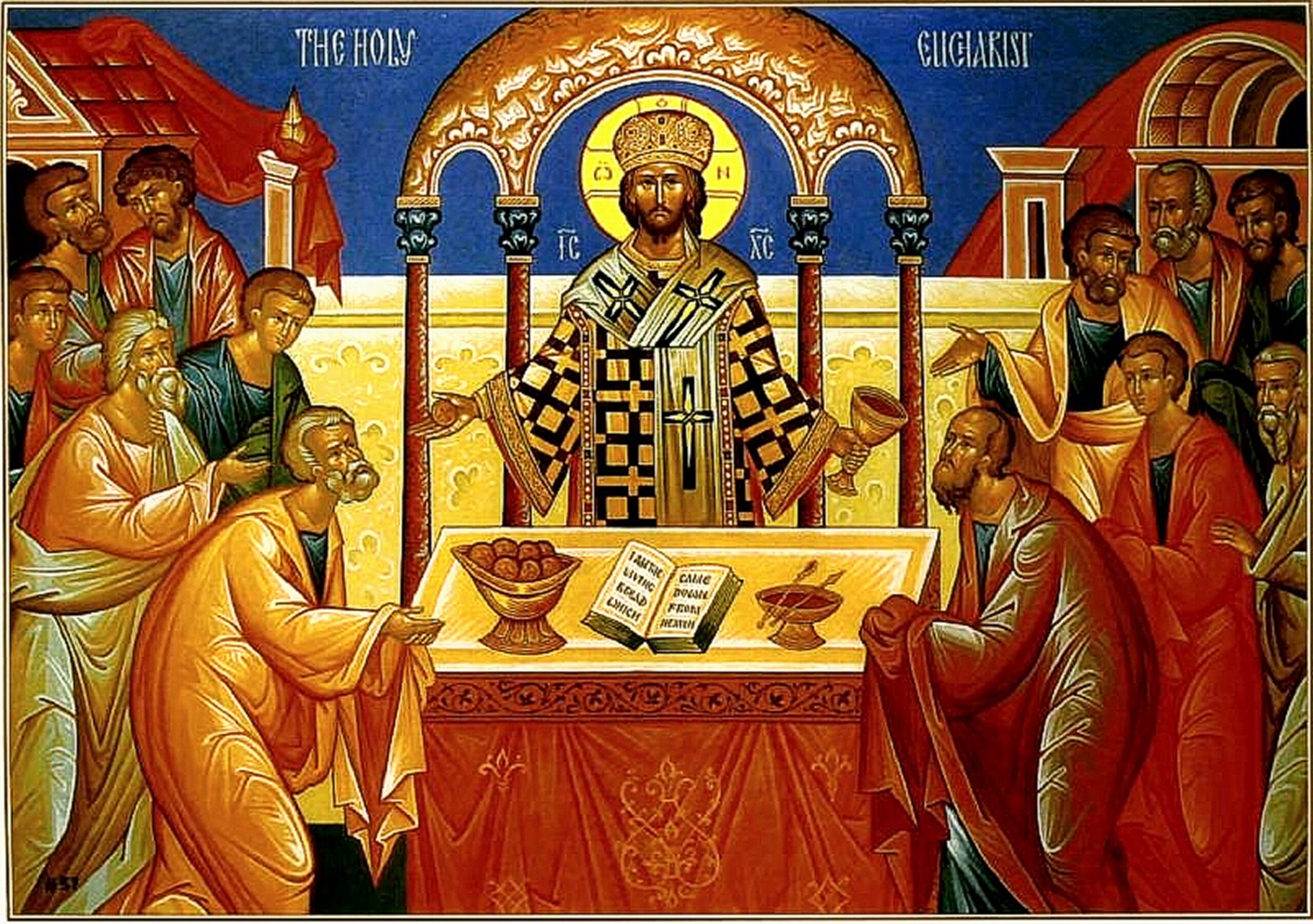Lord, our God, You created us and brought us into this life. You have shown us the way to salvation and have bestowed upon us the revelation of heavenly mysteries. You have appointed us to this service by the power of Your Holy Spirit. Grant, therefore, O Lord that we may be accepted as servants of Your New Covenant and ministers of Your Holy Mysteries.
(Divine Liturgy of St. Basil the Great, p. 19-20)
—
He who brings thanksgiving as his sacrifice honors Me; to him who orders his way aright I will show the salvation of God!
Psalm 50:23
After the Great Entrance, the gifts (not consecrated yet) are placed on the Holy Altar Table. A set of petitions follows, called the “Litany of Completion” (they begin with “Let us complete our prayer to the Lord”). At the end of this set of petitions, there is a lengthy prayer which will be examined over the next several reflections.
As was said earlier, these prayers of the Liturgy of St. Basil have a very detailed theology that is put very succinctly. In these first few sentences of this prayer, we encounter a summary of the Holy Trinity. Each person of the Trinity will be mentioned individually in other prayers and in future reflections, but for this reflection, we get a summary.
Each person of the Holy Trinity has a different role. We generally see God the Father as the Creator, though all three persons of the Holy Trinity participated in the Creation. We generally see the Son as the Savior. He is the one who redeems us from the curse resulting from the Fall of mankind. And we generally see the Holy Spirit as the one who sustains us in our journey through this life. The Holy Spirit is the one who affects the Sacraments, the One Whom we call down especially during the Divine Liturgy to consecrate the Gifts we have offered.
Jesus said in John 15:26, “But when the Counselor comes, whom I shall send to you from the Father, even the Spirit of truth, who proceeds from the Father, He will bear witness to me.” In Matthew 11:27, Jesus said “All things have been delivered to Me by My Father, and no one knows the Son except the Father, and no one knows the Father except the Son and anyone to whom the Son chooses to reveal Him.” These verses, among many others, set the relationship between the persons of the Holy Trinity. We utilize the Spirit to come to know Christ, and through Christ, we come to know the Father.
These three distinct roles of the Holy Trinity are summarized in the opening to the prayer we begin to reflect on today.
Lord, our God, You created us and brought us into this life. This refers to the Father.
You have shown us the way to salvation and have bestowed on us the revelation of heavenly mysteries. This refers to the Son, the one who has showed us the way to salvation.
You have appointed us to this service by the power of Your Holy Spirit. Even though the One addressed in this prayer is the “Lord, our God,” we acknowledge that our ability to offer this service is granted by the power of the Holy Spirit.
The next line of the prayer asks God “that we may be accepted as servants of Your New Covenant and ministers of Your Holy Mysteries.” This seems to refer to both clergy and laity, those who are participating in the service, who will shortly be united with Christ in the sacrament of Holy Communion. While it is the priests who are the “ministers” of the Holy Mysteries, all people stand as “servants of Your New Covenant.”
There is a beautiful icon of the Holy Trinity, many times referred to as the Hospitality of Abraham, when he was visited by three man in Genesis 18. These three men, to whom Abraham addressed as “lord” and to whom he offered hospitality, are depicted in icons as three angels representing the Holy Trinity. Sometimes Abraham and Sarah are depicted in the icon and sometimes it is just the three angels.
This icon is profound in that it recreates these four thoughts. It shows each person of the Trinity sitting on three sides of a four-sided table. The fourth side is open. It is open for us, the servants of the New Covenant and the ministers of the Holy Mysteries. We are invited by the Holy Trinity to partake of their Divine Nature. We are invited to share in the creative energy of the Father. We are invited to taste of the New Covenant and be united with the Son. We are invited to partake of the Grace of the Holy Spirit. The choice to come to the table is ours. It is an invitation that is bountifully offered, but it is our choice whether to accept, both the demeanor with which we accept and the frequency with which we accept.
The Bible verse from Psalm 50:23 reminds us that we should approach “the table” with thanksgiving and sacrifice. The Psalmist says that this is the way we honor God. To those who approach in the manner God makes a promise—He will show them salvation!
It is not enough just to know about the Lord. We are supposed to approach the Altar in the posture of servants, who come with thanksgiving and sacrifice. Whether we are “ministers” or not, we are all servants. And even to those who are not ordained priests, we are all “ministers” in the sense that we all have the opportunity to engage in ministry, in things that share God with others, in worship that brings us to the “table” and in ministry that brings others to the “table” as well.
